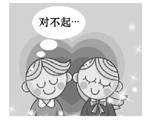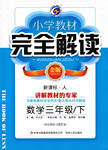题目内容
I consider myself something of an expert on apologies. A quick temper has me with plenty of opportunities to make them. In one of my earlier , my mother was telling me“Don’t watch the when you say, ‘I’m sorry’. Hold your head up and look at the person in the , so he’ll know you it. ”

My mother thus made the key point of a(n) apology: It must be direct. You must never to be doing something else. You do not a pile of letters while apologizing to a person in position after blaming him or her for a mistake that turned out to be your . You do not apologize to a hostess, whose guest of honor you treat , by sending flowers the next day without mentioning your bad .
One of the important things we should do for an apology is a readiness to the responsibility for our careless mistakes. We are used to making excuses, which leaves no for the other person to us. Since most people are open-hearted, the no-excuse apology leaves both parties feeling about themselves. That, after all, is the of every apology. It little whether the apologizer is wholly or only partly at fault. Answering for one’s encourages others to take their share of the blame.

My mother thus made the key point of a(n) apology: It must be direct. You must never to be doing something else. You do not a pile of letters while apologizing to a person in position after blaming him or her for a mistake that turned out to be your . You do not apologize to a hostess, whose guest of honor you treat , by sending flowers the next day without mentioning your bad .
One of the important things we should do for an apology is a readiness to the responsibility for our careless mistakes. We are used to making excuses, which leaves no for the other person to us. Since most people are open-hearted, the no-excuse apology leaves both parties feeling about themselves. That, after all, is the of every apology. It little whether the apologizer is wholly or only partly at fault. Answering for one’s encourages others to take their share of the blame.
| 小题1: |
|
| 小题2: |
|
| 小题3: |
|
| 小题4: |
|
| 小题5: |
|
| 小题6: |
|
| 小题7: |
|
| 小题8: |
|
| 小题9: |
|
| 小题10: |
|
| 小题11: |
|
| 小题12: |
|
| 小题13: |
|
| 小题14: |
|
| 小题15: |
|
| 小题16: |
|
| 小题17: |
|
| 小题18: |
|
| 小题19: |
|
| 小题20: |
|
小题1:A
小题2:C
小题3:B
小题4:D
小题5:C
小题6:B
小题7:A
小题8:C
小题9:D
小题10:A
小题11:C
小题12:A
小题13:B
小题14:D
小题15:D
小题16:B
小题17:C
小题18:A
小题19:B
小题20:D
本文阐述了一个观点, 道歉要真诚, 要敢于承担责任, 同时也批评了一些“假”道歉的行为。
小题1:选A。考查背景常识。作者是急脾气当然会提供给作者很多道歉的机会。provide提供; mix混合; compare比较; treat治疗。
小题2:选C。考查对上下文语境的理解。母亲过去告诉我道歉时不应该看地面, 这当然应该是记忆中的事。memory记忆; dream梦想; course课程; idea主意。
小题3:选B。考查词语复现。根据后面的hold your head up可知用ground。
小题4:选D。考查背景常识。道歉时看着对方的眼睛, 以示真诚, 在这一点上中西方是一样的。
小题5:选C。考查词义辨析。mean it意为“这样对方就会明白你有道歉的意思”, it在这里指道歉的行为; imagine想象; enjoy喜欢; regret后悔。
小题6:选B。考查前后照应。冒号后的内容即为“成功的”道歉的一些基本特征。successful成功的; useful有用的; equal平等的; basic基本的。
小题7:选A。考查背景常识。道歉要直接, 你绝不要假装在做其他的事。pretend假装; forget忘记; refuse拒绝; expect期盼。
小题8:选C。考查前后照应。上句提到“你绝不要假装在做其他的事”, 所以此处是表达在道歉时不要浏览信件。look through浏览; hold on坚持住, 抓住; put away把……收起来; pick up捡起。
小题9:选D。考查背景常识。职务论的是高、低。
小题10:选A。考查词语复现。根据前面的mistake可知。fault错误; reason理由; result结果; duty责任。
小题11:选C。考查词义辨析。roughly此处表示对待客人不礼貌, 服务不到位。从前面的要不要道歉的讨论可以猜出这一答案; cruelly残忍地; freely自由地; foolishly愚蠢地。
小题12:选A。考查固定搭配。bad manners没礼貌, 从treat roughly不难判断答案。
小题13:选B。考查词义辨析。effective有效的; active积极的; extra额外的; easy容易的。
小题14:选D。考查固定搭配。bear the responsibility承担责任, 为固定搭配; raise举起; perform表演; admit承认。
小题15:选D。考查固定搭配。leave no room不留余地。situation形势; need需要; sign迹象。
小题16:选B。考查对上下文语境的理解。道歉是为了获得原谅。forgive原谅; advise建议; warn警告; blame责备。
小题17:选C。考查词义辨析。better表示“心情更舒畅”。未找借口的道歉, 即真诚的道歉, 对方的感觉一定很好。wise明智的; warm暖和的; clever聪明的。
小题18:选A。考查词义辨析。道歉的最终“目的”是化干戈为玉帛, 大家和好如初, 所以用purpose。method方法; end末端; advantage优势。
小题19:选B。考查对上下文语境的理解。道歉者是全部还是部分承担责任这些都不太重要, 关键是为自己的所作所为主动负责, 这也能促使别人共同承担责任。
小题20:选D。考查背景常识。根据常识可知应该是对自己的“行动”负责。answer for在此意为“对……负责”。
小题1:选A。考查背景常识。作者是急脾气当然会提供给作者很多道歉的机会。provide提供; mix混合; compare比较; treat治疗。
小题2:选C。考查对上下文语境的理解。母亲过去告诉我道歉时不应该看地面, 这当然应该是记忆中的事。memory记忆; dream梦想; course课程; idea主意。
小题3:选B。考查词语复现。根据后面的hold your head up可知用ground。
小题4:选D。考查背景常识。道歉时看着对方的眼睛, 以示真诚, 在这一点上中西方是一样的。
小题5:选C。考查词义辨析。mean it意为“这样对方就会明白你有道歉的意思”, it在这里指道歉的行为; imagine想象; enjoy喜欢; regret后悔。
小题6:选B。考查前后照应。冒号后的内容即为“成功的”道歉的一些基本特征。successful成功的; useful有用的; equal平等的; basic基本的。
小题7:选A。考查背景常识。道歉要直接, 你绝不要假装在做其他的事。pretend假装; forget忘记; refuse拒绝; expect期盼。
小题8:选C。考查前后照应。上句提到“你绝不要假装在做其他的事”, 所以此处是表达在道歉时不要浏览信件。look through浏览; hold on坚持住, 抓住; put away把……收起来; pick up捡起。
小题9:选D。考查背景常识。职务论的是高、低。
小题10:选A。考查词语复现。根据前面的mistake可知。fault错误; reason理由; result结果; duty责任。
小题11:选C。考查词义辨析。roughly此处表示对待客人不礼貌, 服务不到位。从前面的要不要道歉的讨论可以猜出这一答案; cruelly残忍地; freely自由地; foolishly愚蠢地。
小题12:选A。考查固定搭配。bad manners没礼貌, 从treat roughly不难判断答案。
小题13:选B。考查词义辨析。effective有效的; active积极的; extra额外的; easy容易的。
小题14:选D。考查固定搭配。bear the responsibility承担责任, 为固定搭配; raise举起; perform表演; admit承认。
小题15:选D。考查固定搭配。leave no room不留余地。situation形势; need需要; sign迹象。
小题16:选B。考查对上下文语境的理解。道歉是为了获得原谅。forgive原谅; advise建议; warn警告; blame责备。
小题17:选C。考查词义辨析。better表示“心情更舒畅”。未找借口的道歉, 即真诚的道歉, 对方的感觉一定很好。wise明智的; warm暖和的; clever聪明的。
小题18:选A。考查词义辨析。道歉的最终“目的”是化干戈为玉帛, 大家和好如初, 所以用purpose。method方法; end末端; advantage优势。
小题19:选B。考查对上下文语境的理解。道歉者是全部还是部分承担责任这些都不太重要, 关键是为自己的所作所为主动负责, 这也能促使别人共同承担责任。
小题20:选D。考查背景常识。根据常识可知应该是对自己的“行动”负责。answer for在此意为“对……负责”。

练习册系列答案
 小学教材完全解读系列答案
小学教材完全解读系列答案
相关题目